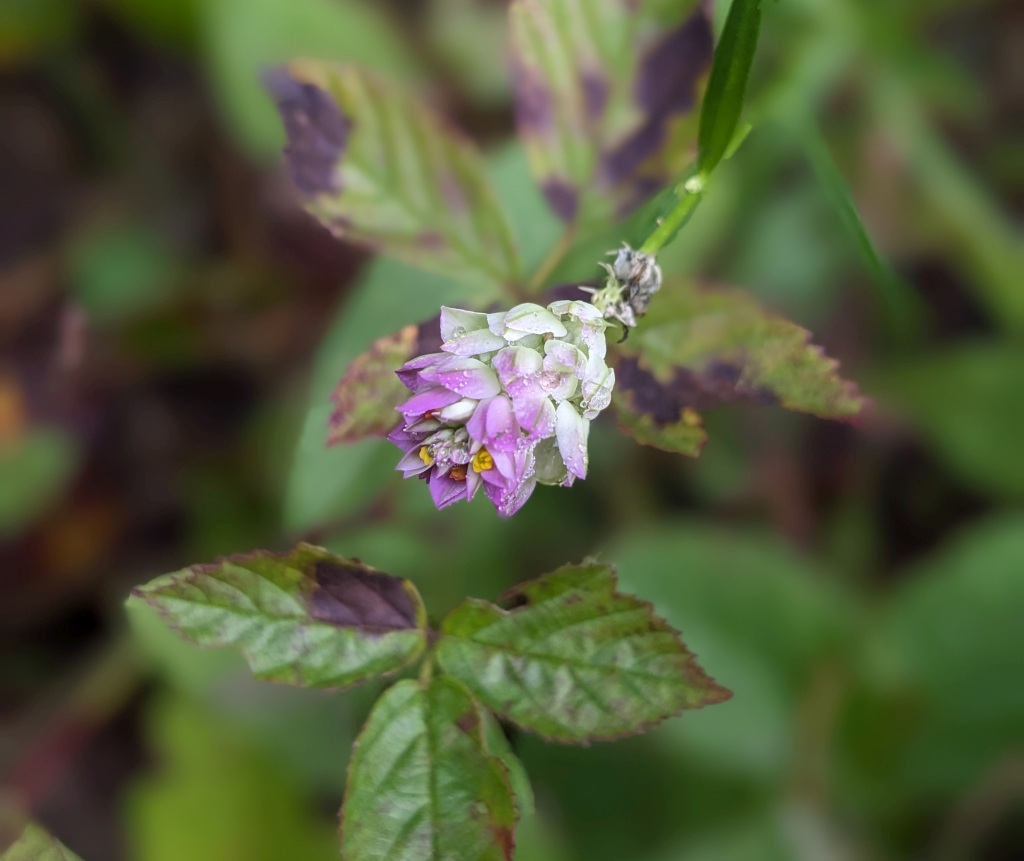
12 September 2023
Why do some plants have the suffix “-wort” in their names?
The suffix “-wort” simply means “plant.” In earlier centuries, plant common names often referred to physical characteristics, resemblance, or recommended medicinal uses.
— Univ of Wisconsin-Madison Arboretum: Gardening with Native Plants: Worts and Weeds, pt. 1
Here are some recently blooming “-worts.”
Purple milkwort (Polygala sanguinea), above, is native to North America. “The genus name Polygala comes from the ancient Greek “much milk”, as the plant was thought to increase milk yields in cattle.” I have no idea if this works.
Mugwort (Artemisia vulgaris), related to ragweed, is used in cooking and has been used medicinally. It has a bitter flavor. Why “mug”? I don’t know.
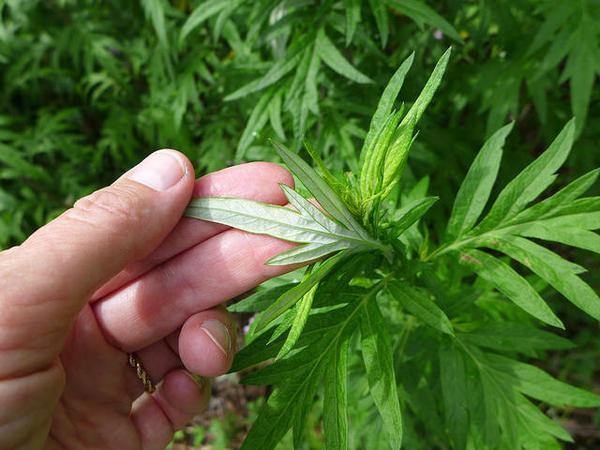
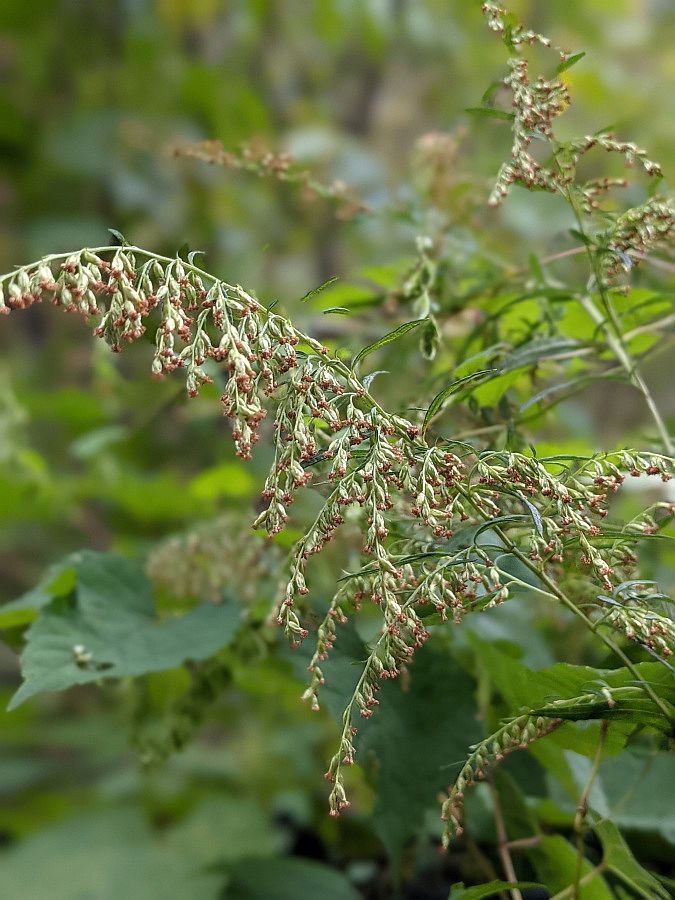
Pilewort (Erechtites hieraciifolius) is a member of the Aster family that grows easily in disturbed soil. Quirky Science says the “reported uses include the treating of hemorrhage, dysentery, skin diseases, and cholera. It is a purgative and emetic. The name suggests it is good in treating piles (hemorrhoids).”
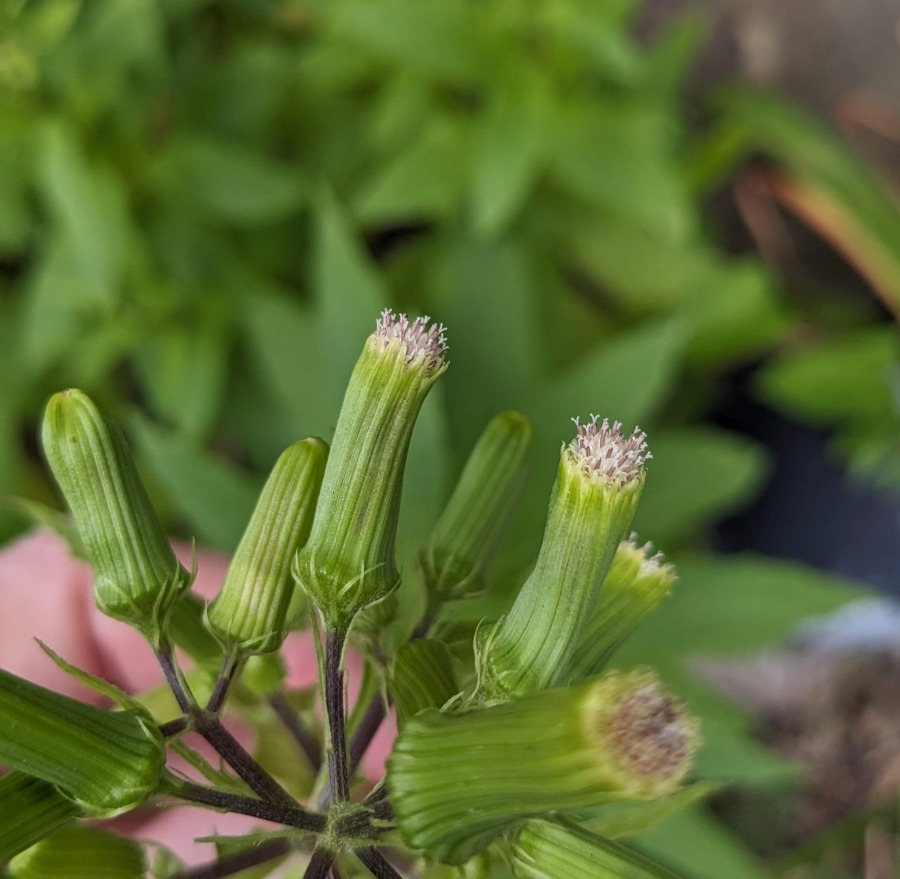

St. Johns wort (Hypericum perforatum), imported from Europe, is so-named because it blooms in June and was traditionally harvested on St. John’s Day, June 24, to adorn homes and ward off evil. It is an herbal treatment for depression and has been planted nearly worldwide.
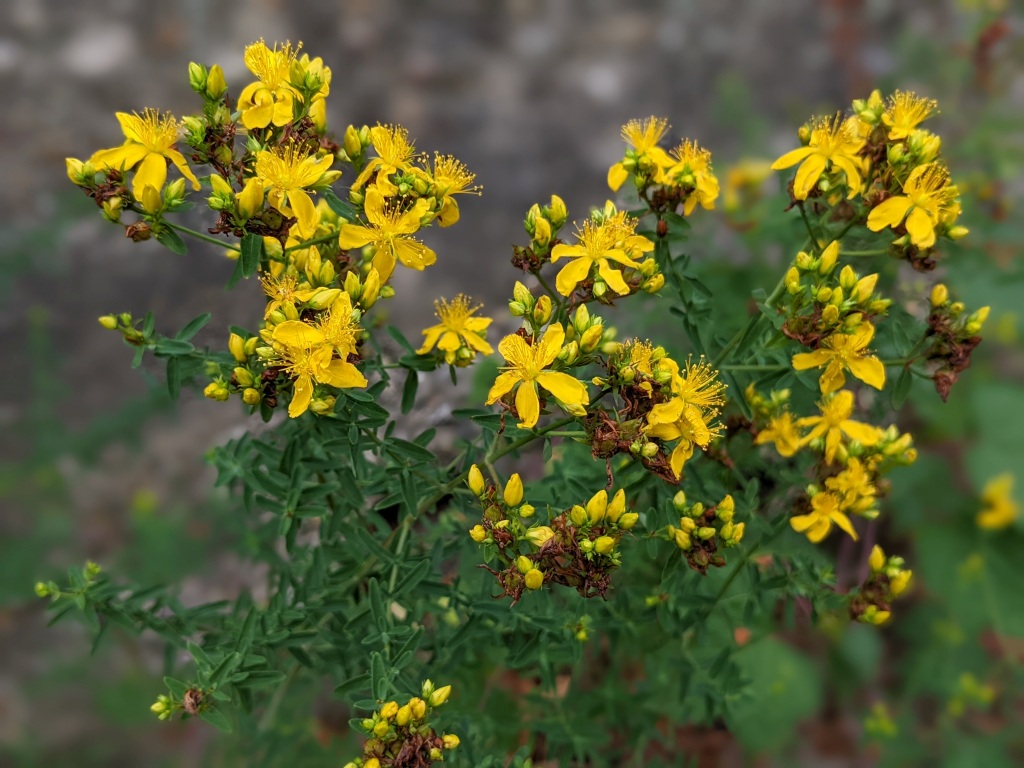
(photos by Kate St. John)